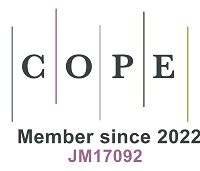Special Interview with Prof. Stuart Harrad
On January 14, 2022, the Editorial Office of Journal of Environmental Exposure Assessment (JEEA) conducted a special interview with Prof. Stuart Harrad, an expert in environmental exposure science from the School of Geography, Earth and Environmental Sciences, University of Birmingham, Birmingham, UK. His research focuses on environmental chemistry, particularly the occurrence, environmental behavior, and human exposure implications of persistent organic pollutants (POPs) and flame retardants.
During the interview, Prof. Harrad emphasized that effective risk assessment depends on two key factors: accurately quantifying exposure levels and elucidating the pathways through which exposure occurs---both essential for reducing risks to levels considered safe for public health. Reflecting on his academic journey, Prof. Harrad noted that his doctoral research on chlorinated dioxins in UK soils sparked his lifelong commitment to studying the environmental behavior and fate of trace organic contaminants. Over the years, this passion has continued to drive his work and academic leadership.
Dedicated to mentoring young scientists, Prof. Harrad encourages doctoral students to conduct critical literature reviews to identify research gaps and publish their findings early on.
As the Editor-in-Chief of JEEA, Prof. Harrad expressed his goal of developing a high-quality, specialized platform for advancing research on environmental exposure assessment and its impact on human health.
Watch the video for Prof. Stuart Harrad's expert insights.
Interview Questions:
1. What is the most important question you want to address in your research area?
2. What was the defining moment that led you to your field?
3. How do you typically guide new doctoral candidates as they begin their research?
4. How do you relax and what are your hobbies?
5. As the Editor-in-Chief, what are your plans and vision for the development of JEEA?
About Prof. Stuart Harrad

Prof. Stuart Harrad is a Professor of Environmental Chemistry at the School of Geography, Earth and Environmental Sciences, University of Birmingham, Birmingham, UK. He gained his Bachelor of Science in Applied Chemistry from De Montfort University in 1984, followed by a Master of Science in Analytical Chemistry from the University of East Anglia in 1985, and his PhD on the Levels and Sources of polychlorinated dibenzo-p-dioxins and polychlorinated dibenzofurans (PCDD/Fs) in UK soils in 1989. After several postdoctoral appointments in both the USA and UK, he joined the University of Birmingham in September 1994. His extensive research interests include POPs, per- and polyfluoroalkyl substances (PFAS), polychlorinated biphenyls (PCBs), polycyclic aromatic hydrocarbons (PAHs), brominated flame retardants (BFRs), flame retardants, organophosphate esters (OPEs), polybrominated diphenyl ethers (PBDEs), hexabromocyclododecane (HBCDD), environmental forensics, pharmaceuticals, soil and sediment pollution, water, dietary exposure, human biomonitoring, waste and e-waste management, landfills, and temporal trends in contaminant behavior. Prof. Harrad heads the UK National Network on Persistent Organic Pollutants and serves on the International Advisory Board of the Annual International Symposia on Halogenated Persistent Organic Pollutants. He also chaired the 28th Symposium held in Birmingham from August 17-22, 2008. To date, Prof. Harrad has authored more than 214 published papers and holds an H-index of 61 (source: Scopus, accessed January 2022).
Editor: Tracy Sun
Language Editor: Catherine Yang
Production Editor: Ting Xu







